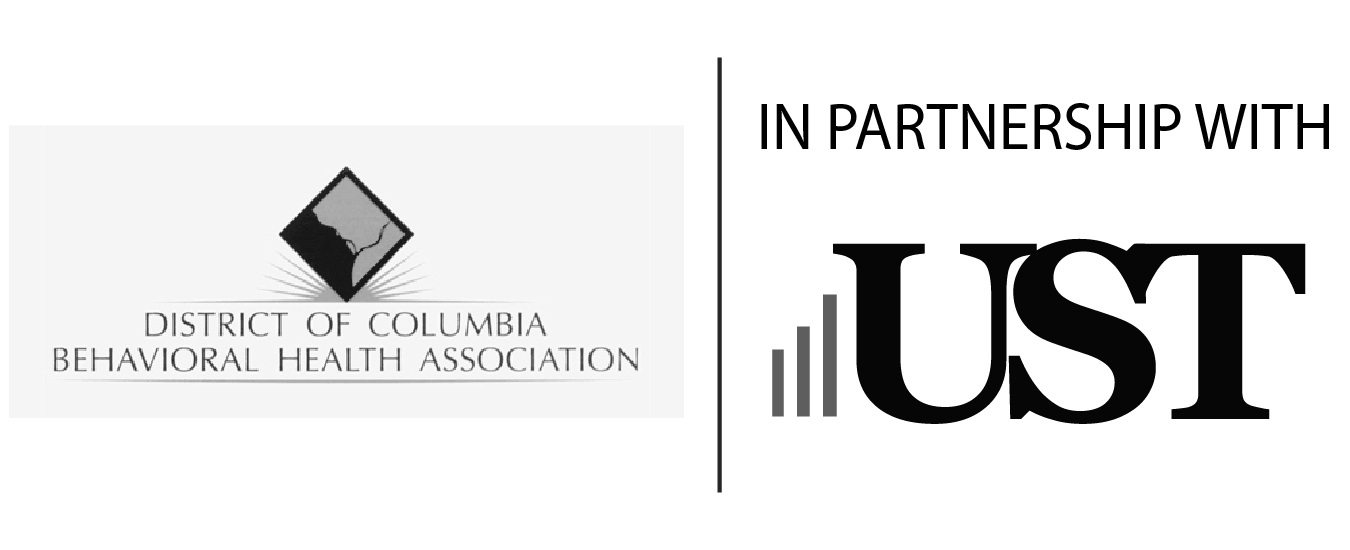
Have you ever wondered about the gap between what you pay in taxes and what your former employees actually collect in unemployment benefits? Last year, after evaluating more than 185 eligible nonprofit organizations, UST found they were losing a combined $4,781,957.
By Federal law, 501c3 nonprofits do not have to pay state unemployment insurance taxes.
UST helps organizations like yours to keep more money in the nonprofit community without compromising the benefits paid out to deserving former employees. More than 2,200 organizations are already benefiting from a safe, cost-effective way to exercise their unemployment tax exemption and lower the hidden costs of HR, like hours spent filing paperwork.
If you’re a tax-rated nonprofit employer with 10+ employees or already direct reimbursing, please submit the online Unemployment Cost Analysis form and UST will readily determine whether you can save valuable time and money with their program. If you are currently overpaying, a UST Cost Advisor will provide you a custom two-year savings projection for free.
It only takes about 15 minutes to fill out the form—and UST participants often see savings of up to 60%—so we really encourage you to do it today.
When you join UST, you’ll be introduced to your dedicated Unemployment Claims Advisor, and receive access to a live HR hotline and nearly 300 employee training courses within 48 hours. To expedite your free Cost Analysis, go to www.ChooseUST.org/savings-evaluation and enter Priority Code: 2017BLOG.

By exercising their exclusive nonprofit tax alternative, as allowed by Federal law, 501c3 organizations participating with UST have the ability to pay only for their own unemployment claims, which can save them thousands annually. Because they are no longer subsidizing for-profit companies in the state tax system, and are receiving expert claims guidance, UST members can efficiently manage their unemployment claims while mitigating liability.
“Within the last three years, UST has identified over $16 million in potential unemployment claims savings for hundreds of nonprofits across the United States,” said Donna Groh, Executive Director of UST. “It’s incredibly rewarding to know that the UST program continues to provide financial relief to such hard-working nonprofits and the communities they serve.”
In addition to offering claims support, UST also help nonprofits cut costs further by helping organization streamline their workforce and avoid costly legal fees with robust HR resources built into its program. These expert tools, including the live HR hotline, online job description builder and award-winning outplacement services, provide UST participants the extra bandwidth they need to strengthen their missions.
As the largest, lowest-cost trust nationwide, UST helps 501c3 organizations save valuable time and money through a host of workforce management solutions that include – unemployment claims management, cash flow protection, certified HR assistance, outplacement services and more. With the ability to find hidden savings for both tax-rated and direct reimbursing employers, UST encourages nonprofits with 10 or more employees to benchmark their costs.

With the expert guidance of a dedicated unemployment claims advisor, UST participants avoid missing deadlines and making significant claims overpayments.
Santa Barbara, CA (November 8, 2016) – The Unemployment Services Trust (UST) today announced that 84% of protestable unemployment claims are won by program participants—an astounding 8% increase since 2012. Because every UST member is assigned a state-specific claims representative, who’s well-versed in the latest unemployment laws and claims filing protocols, these nonprofits are able to contest avoidable claims costs and funnel their savings back into mission-driven initiatives.
501(c)(3) organizations are allowed by federal law to opt out of the state tax system, and instead pay only for the unemployment benefits claimed by former employees. Although these nonprofits no longer share in the excess costs of state taxes that subsidize for-profit employers, they must properly manage their unemployment claims to meet deadlines and avoid costly penalties. UST’s devoted claims representative helps 501(c)(3) employers stay on top of every claim by organizing documentation, protesting improper claims, and providing on-demand support.
“Managing unemployment claims can be both a confusing and draining process, especially for nonprofits that often lack the employee bandwidth to efficiently track their claims,” said Donna Groh, Executive Director of UST. “By providing our members with claims experts, who walk them through everyday best practices for managing claims from start to finish, our participants are left with a worry-free process and more cash in their pockets.”
In addition to receiving expert claims advice, UST participants possess exclusive access to a robust list of claims management resources, including 100% claims representation at hearings, audits of state charges, consultations for strategic staff planning, e-Filing capabilities, and online interactive training—all of which are designed to lower unemployment costs and alleviate paperwork burdens.
In just 4 years, the number of claims protested by UST members has increased by 5%, leading to more wins and more money for the nonprofit sector. Compared to the national average cost of an unemployment claim, UST members experience an average of 55.8% in savings per claim.
If you’re a 501(c)(3) nonprofit with 10 or more full time employees, submit a free Unemployment Cost Analysis form by November 15 to find out if UST can help reduce your unemployment liability for 2017.

What does that mean? Well, by federal law, 501(c)(3)s are allowed to opt-out of paying taxes into their state unemployment tax fund, and instead only reimburse the state if and when they have an actual unemployment claim, dollar-for-dollar.
It can be a savings opportunity for many nonprofits who have lower claims than what they pay in state unemployment taxes—which are often driven up by for-profits and other companies that go out of business, as well as state fund deficits and improper payments made in error.
The Unemployment Services Trust (UST) performed more than 200 free unemployment tax savings evaluations for nonprofits with 10 or more employees in 2013, finding a total of $3,532,485.26 potential unemployment tax savings if they were to exercise their exemption and join the UST program instead.
This year, UST is aiming to identify more than $7 million in unemployment tax savings for nonprofits through free savings evaluations. But time is running out. Most states have a December 1 opt-out deadline, so UST needs all savings evaluation forms submitted before November 15th at the latest in order to meet the state deadline.
You can view your state’s unemployment tax exemption deadline here: www.chooseust.org/state-unemployment-tax-opt-out-deadlines-for-nonprofits
Unfortunately, if a nonprofit misses the state deadline, they have to wait until the following year to exercise their exemption and join the Unemployment Services Trust. So if you or a nonprofit you know has not exercised their exemption, be sure to share the free savings evaluation before the November 15th deadline: www.chooseust.org/request-a-savings-quote

Survey of 2,100 nonprofits reveals that 95 percent of UST members would recommend UST as the preferred unemployment claims management solution for 501(c)(3)s.
Santa Barbara, CA (October 27, 2016) – The Unemployment Services Trust (UST) today announced that 95 percent of its program participants would recommend UST to their fellow nonprofits for the program’s extensive cost-saving resources. Having recently added outplacement services to its list of member benefits as well as increasing education-based webinar opportunities, UST attributes this high net promoter score to its evolving customer service model.
Under federal law, 501(c)(3) employers have the exclusive ability to opt out of their state’s unemployment tax system and instead pay only for the unemployment benefits claimed by former employees. UST helps nonprofits exercise this unique tax exemption status in a safe and cost-effective manner by delivering the latest workforce solutions that ensure HR compliance, reduce cumbersome paperwork tasks and mitigate unemployment claims overpayments.
“We are constantly fine-tuning the UST program to address the sector’s current pain points and shifting needs in managing HR and unemployment liability,” said Donna Groh, Executive Director of UST. “We couldn’t be more pleased to know the vast majority of our membership is very satisfied with our service, and honored that they would recommend our program to their peers.”
UST offers an extensive list of member benefits, which includes a live HR hotline, online employee handbook builder, 100% representation at unemployment claims hearings and e-Filing capabilities—helping to streamline day-to-day tasks and keep more money in the nonprofit community.
Most nonprofits have a November 30th state deadline to opt out of the unemployment tax system for 2017. UST encourages 501(c)(3) organizations, who have yet to benchmark their unemployment costs, to submit a free Unemployment Cost Analysis form by November 15 to find out how they may benefit from the UST program.

The Unemployment Services Trust (UST) is pleased to announce its new affinity partnership with the District of Columbia Behavioral Health Association. The D.C. Behavioral Health Association has chosen to pair up with UST to help their member organizations reduce unemployment costs and direct more funds toward mission advancement objectives.
This new partnership will allow 501(c)(3) organizations with 10 or more employees in the D.C. community to better take advantage of the federal law that allows nonprofits to opt out of the state unemployment tax system. By paying only the dollar-for-dollar cost of unemployment benefits paid to former employees, nonprofit employers that join UST lower their average claims cost to just $2,287 per claim versus the national average of $5,174 per claim.
“Nonprofits are often faced with smaller budgets and limited resources,” said Donna Groh, Executive Director of UST. “But last year, UST helped members achieve over $32.5 million in unemployment claims savings. We are thrilled to have the D.C. Behavioral Health Association join us as our latest Affinity Partner and look forward to helping their members maintain HR best practices and lower their unemployment costs.”
About D.C. Behavioral Health Association: D.C. Behavioral Health Association aims to expand and improve community-based behavioral health services through policy advocacy and staff development. All 42 members offer extensive services to the D.C. housing supports for adults and children in foster care, including treatments for substance abuse and mental health. For more information, visit www.dcbehavioralhealth.org.
About UST: The Unemployment Services Trust is dedicated to educating 501(c)(3)s about controlling HR and unemployment costs and helping them exercise their federal right to reimburse for unemployment claims, dollar-for-dollar. UST helps nonprofits manage unemployment claims to successfully save thousands of dollars annually. Learn more at www.ChooseUST.org.

Get your FREE Unemployment Cost Analysis today!
For most 501(c)(3) organizations with 10 or more employees, November is the month to exercise their state unemployment tax exemption for an effective date of January 1, 2017.
What does that mean? Well, by federal law, 501(c)(3)s are allowed to opt-out of paying taxes into their state unemployment tax fund, and instead only reimburse the state if and when they have an actual unemployment claim, dollar-for-dollar.
It can be a savings opportunity for many nonprofits who have lower claims than what they pay in state unemployment taxes—which are often driven up by for-profits and other companies that go out of business, as well as state fund deficits and improper payments made in error.
The Unemployment Services Trust (UST) performed more than 400 free unemployment tax savings evaluations for nonprofits with 10 or more employees in 2015, finding a total of $6,022,190 in potential unemployment tax savings if they were to exercise their exemption and join the UST program instead.
But time is running out to benchmark your nonprofit’s unemployment costs and opt out of the state unemployment tax system. Most states have a December 1st opt-out deadline, so UST needs all unemployment cost analysis forms submitted before Nov 15th at the latest in order to meet the state deadline.
You can view your state’s unemployment tax exemption deadline here: www.chooseust.org/state-unemployment-tax-opt-out-deadlines-for-nonprofits
Unfortunately, if a nonprofit misses the state deadline, they have to wait until the following year to exercise their exemption and join the Unemployment Services Trust. So if you or a nonprofit you know has not exercised their exemption, be sure to share the free cost analysis form before the Nov 15th deadline: www.chooseust.org/request-a-savings-quote

UST R ewards 431 Members for Successfully Lowering Their Anticipated Unemployment Claims within the Last Year.
Santa Barbara, CA (October 4, 2016) – In an era when nonprofits are struggling to stretch their budgets, the Unemployment Services Trust (UST) today announced it is pleased to disperse $6,664,166 to 431 of its program participants. The agencies receiving the funds have demonstrated prudent management of their unemployment costs resulting in a return of funds back to the organizations. This brings participant savings over the past year to a whopping $34,980,275.96 in claims savings, audited state returns and cash back.
501(c)(3) organizations have the exclusive advantage of opting out of their state’s unemployment tax system and instead paying dollar-for-dollar for only their former employees claims. Excess payments made into the state tax system are not refunded to employers. UST, however, provides cash back when an organization has had a positive claim history and has reduced its unemployment claims lower than initially anticipated, while also staying well-funded for future claims.
“It’s incredibly rewarding to be able to give money back to these organizations whose core mission objectives are geared towards serving their communities,” said Donna Groh, Executive Director of UST. “It allows them the funds to further expand their programs in areas where otherwise they might not have been able. In a way we’re helping to invest in the future of each nonprofit organization participating in the Trust and that’s a great feeling.”
The largest nonprofit unemployment trust in the nation, UST helps 501(c)(3) organizations nationwide save time and money through a host of workforce management solutions that include – unemployment claims management, cash flow protection, HR Workplace assistance, outplacement services and more. The company services nonprofits from all sectors with 10 or more full-time employees. UST encourages nonprofits that are currently tax-rated or direct reimbursing on their own to review their options as they may be over-paying.

From day one and onward, nonprofit employees look to training to feel capable at their job… and valued. Do you offer them that opportunity?
According to the 2015 Nonprofit Employee Engagement and Retention Report, organizations with high turnover also tended to have fewer training opportunities for employees—so providing new hires with the right tools at the right time is extremely important for retaining good-fit employees.
Employees want to feel like they’re making a contribution, and being trained on the job is a critical part of employee development and reinforcing their sense of worth. But in last year’s study, 29% of nonprofit respondents reported that they received NO onboard training, and about 1/3 said they got only 1-2 weeks.
Longer onboard training for new employees was linked to 1) lower turnover, 2) higher levels of employee job satisfaction, and 3) a lower likelihood of employees planning to quit in the next year. Organizations with 90-day onboarding strategies had the highest employee engagement. And when a company implements a successful onboarding program, they experience 54% greater productivity and 50% greater retention.
Here are 4 simple ways you can implement training at your nonprofit:
Overall, onboarding new employees (especially supervisors) can help them feel welcome and prepared to do their best. Ongoing training is a great way to develop skills, maintain goodwill among employees and keep your new hires from packing up their desks.
Discover a few other top reasons your employees might be headed for the door. For a limited time, download UST’s 2016 report, 6 Reasons Your Nonprofit Employees QUIT, and learn how you can improve your organization’s employee management strategies.

UST maintains a secure site. This means that information we obtain from you in the process of enrolling is protected and cannot be viewed by others. Information about your agency is provided to our various service providers once you enroll in UST for the purpose of providing you with the best possible service. Your information will never be sold or rented to other entities that are not affiliated with UST. Agencies that are actively enrolled in UST are listed for review by other agencies, UST’s sponsors and potential participants, but no information specific to your agency can be reviewed by anyone not affiliated with UST and not otherwise engaged in providing services to you except as required by law or valid legal process.
Your use of this site and the provision of basic information constitute your consent for UST to use the information supplied.
UST may collect generic information about overall website traffic, and use other analytical information and tools to help us improve our website and provide the best possible information and service. As you browse UST’s website, cookies may also be placed on your computer so that we can better understand what information our visitors are most interested in, and to help direct you to other relevant information. These cookies do not collect personal information such as your name, email, postal address or phone number. To opt out of some of these cookies, click here. If you are a Twitter user, and prefer not to have Twitter ad content tailored to you, learn more here.
Further, our website may contain links to other sites. Anytime you connect to another website, their respective privacy policy will apply and UST is not responsible for the privacy practices of others.
This Privacy Policy and the Terms of Use for our site is subject to change.
UST maintains a secure site. This means that information we obtain from you in the process of enrolling is protected and cannot be viewed by others. Information about your agency is provided to our various service providers once you enroll in UST for the purpose of providing you with the best possible service. Your information will never be sold or rented to other entities that are not affiliated with UST. Agencies that are actively enrolled in UST are listed for review by other agencies, UST’s sponsors and potential participants, but no information specific to your agency can be reviewed by anyone not affiliated with UST and not otherwise engaged in providing services to you except as required by law or valid legal process.
Your use of this site and the provision of basic information constitute your consent for UST to use the information supplied.
UST may collect generic information about overall website traffic, and use other analytical information and tools to help us improve our website and provide the best possible information and service. As you browse UST’s website, cookies may also be placed on your computer so that we can better understand what information our visitors are most interested in, and to help direct you to other relevant information. These cookies do not collect personal information such as your name, email, postal address or phone number. To opt out of some of these cookies, click here. If you are a Twitter user, and prefer not to have Twitter ad content tailored to you, learn more here.
Further, our website may contain links to other sites. Anytime you connect to another website, their respective privacy policy will apply and UST is not responsible for the privacy practices of others.
This Privacy Policy and the Terms of Use for our site is subject to change.
The UST HR Workplace powered by ThinkHR empowers nonprofit HR professionals with the guidance they need to be more effective and efficient in their jobs. By providing expert HR advice, thousands of HR templates, hundreds of training courses and an award-winning online library for all workplace concerns, the UST HR Workplace gives nonprofits the knowledge they need to avoid costly risks and liability issues.
“Maintaining risks in the workplace is crucial to any organization but specifically for the nonprofit sector where one unexpected risk can put the organization in a situation they’re unprepared for,” said Donna Groh, Executive Director of UST, “ThinkHR helps nonprofit HR professionals avoid costly litigation with the tools available to them through use of ThinkHR Live, Comply and Learn.”
Staying on top of the latest HR laws and educating employees on organizational policies can help mitigate volatile unemployment claims and reduce costs long-term. Last year alone, UST members took nearly 5,000 online training courses and submitted close to 1,500 HR questions. The most popular resources utilized included Workplace Safety and Harassment Prevention training, Compliance and compensation inquiries, the Employee Handbook Builder and downloadable HR forms.
The UST HR Workplace has been a go-to resource for UST’s participating nonprofit employers since its launch in 2014 and is a priceless support system that helps to save time and money – offered at no additional cost to UST members.
Nonprofits can get a free 30-day trial of the UST HR Workplace powered by ThinkHR by visiting https://www.chooseust.org/thinkhr/.
About UST https://www.chooseust.org/thinkhr/ Founded in 1983, the Unemployment Services Trust UST provides 501c3s with a cost-effective alternative to paying state unemployment taxes. UST participants save millions annually through claims management, hearing representation, claim audits, outplacement services and HR support. Join more than 2,200 nonprofits nationwide and request an Unemployment Cost Analysis at www.ChooseUST.org.